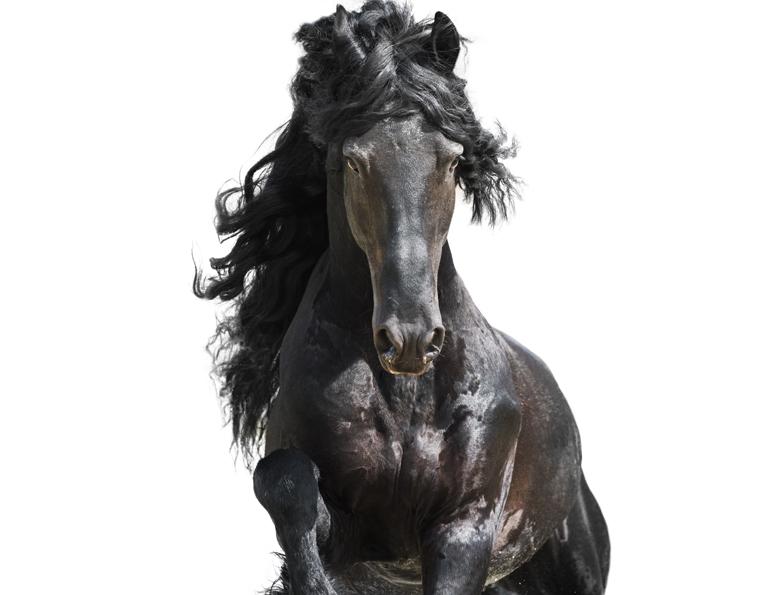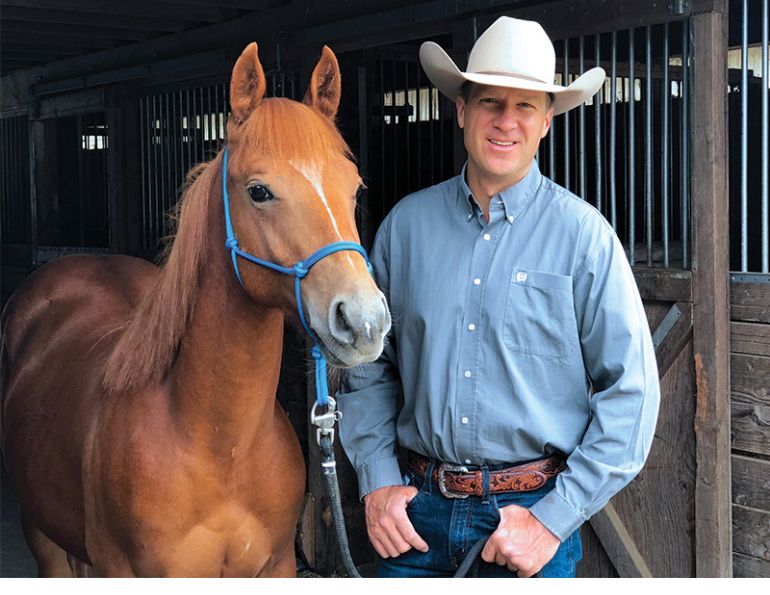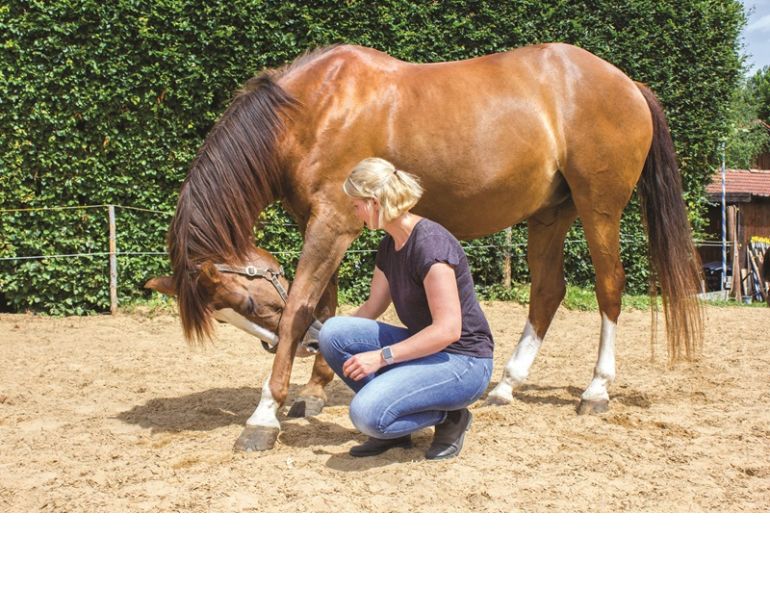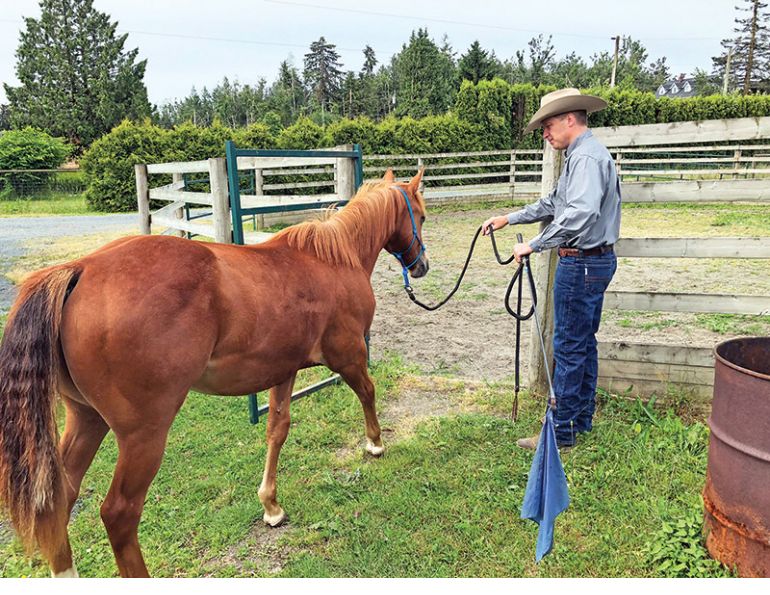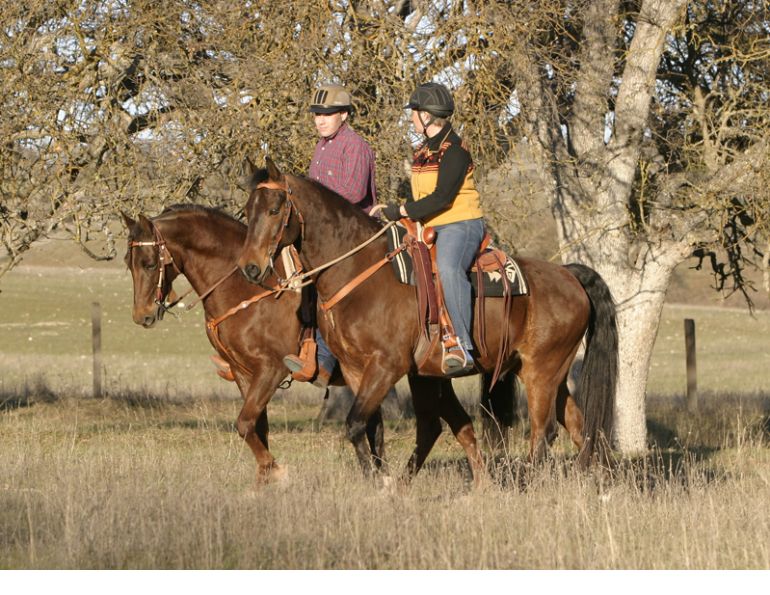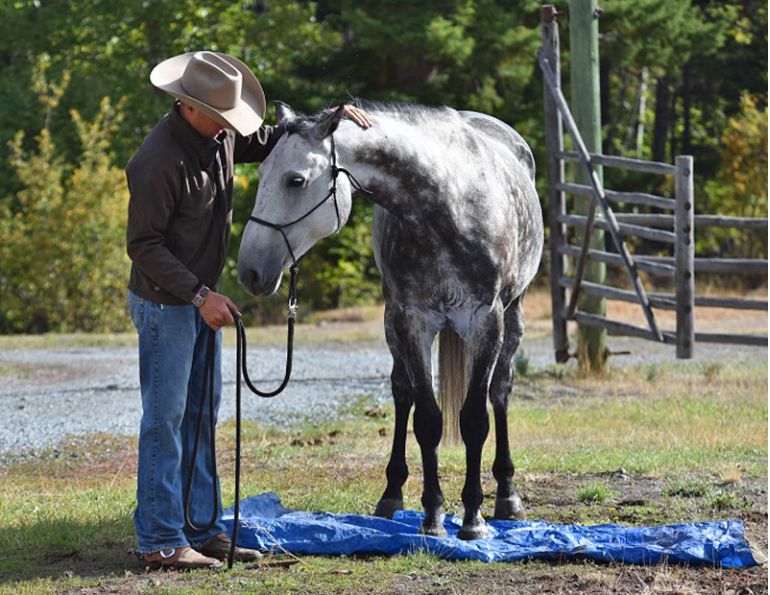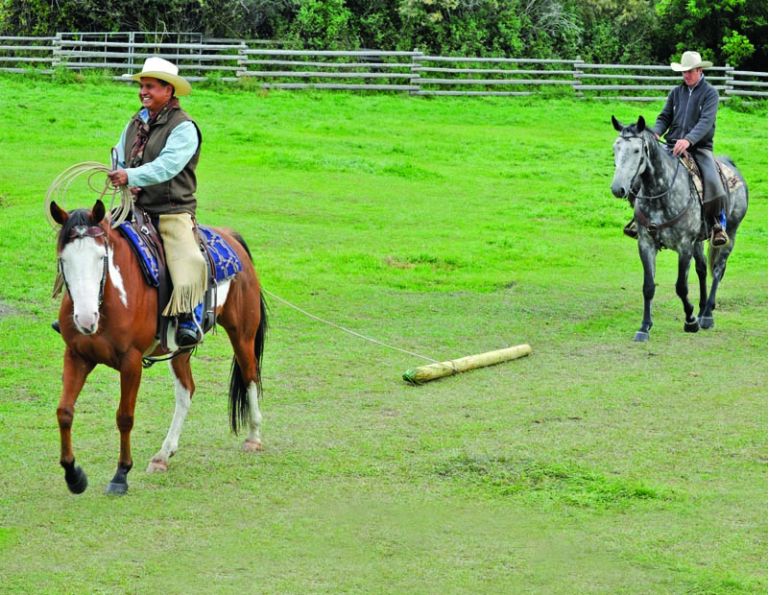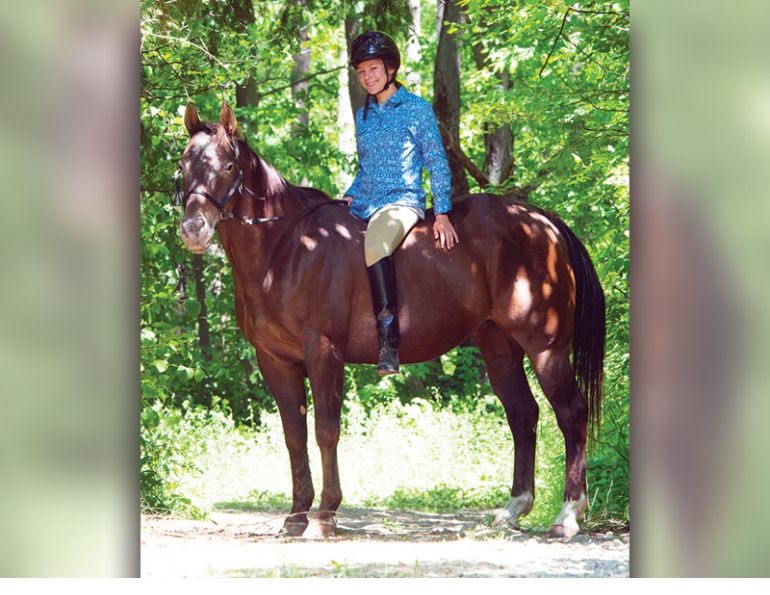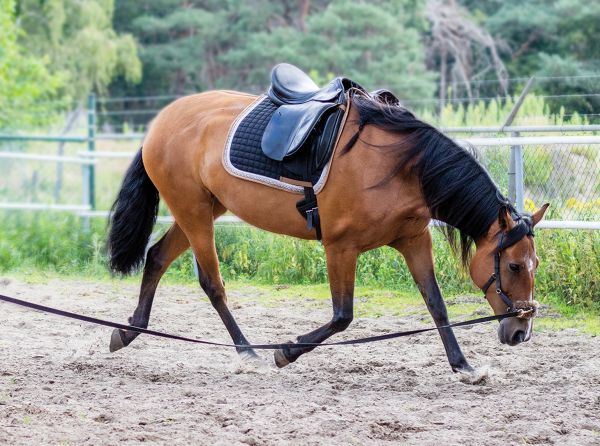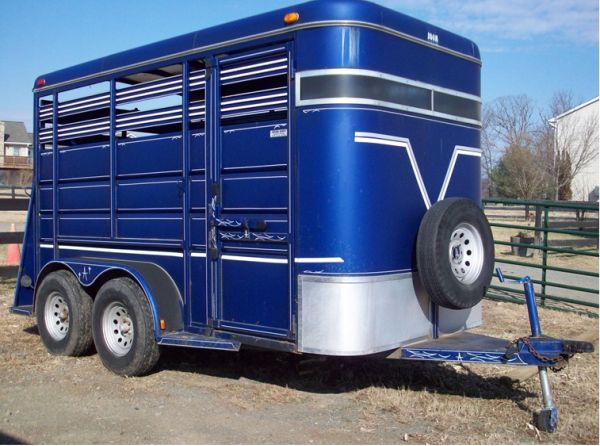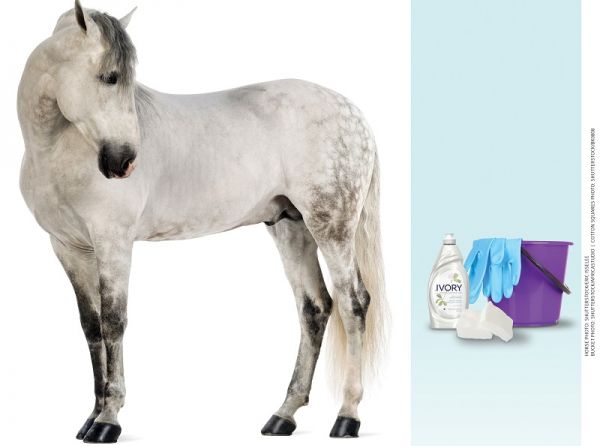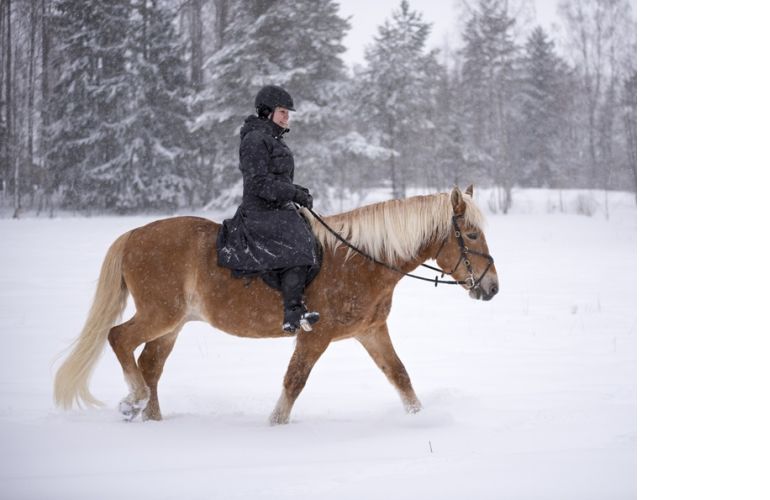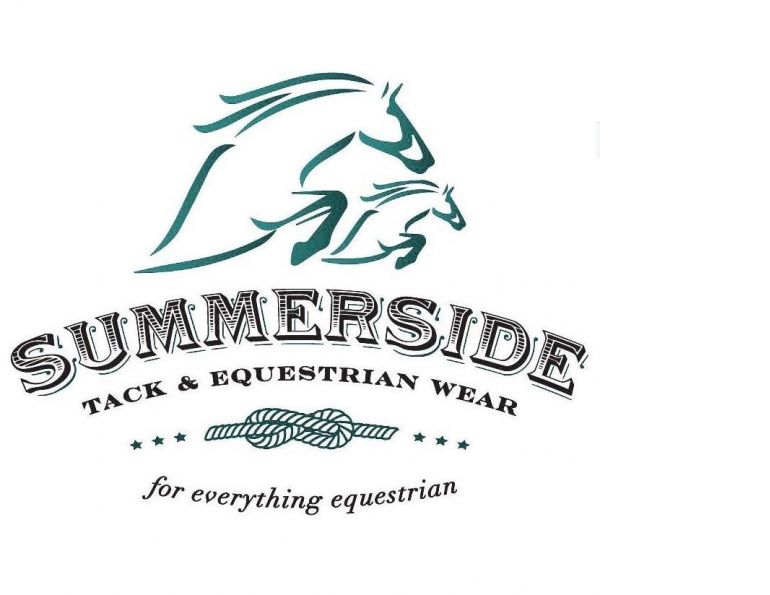By Alexa Linton, Equine Sports Therapist
If you’ve ever walked your horse, even with a saddle on, down a trail and past people, you know how it feels. You’re enjoying your horse time and minding your own business, when someone asks Why aren’t you riding that horse? Or someone jokes about taking your “very large dog” for a walk. I had one barn neighbour show her friend on video chat “the girl that doesn’t ride her horse” (me) as we were walking by. It would be awkward if it wasn’t so common. Horses and riding are synonymous in the human psyche, and any departure from this norm is considered very odd indeed, despite the fact that some horses don’t benefit from riding and some humans really don’t enjoy riding.
By writing this article, my hope is to give you permission to not ride your horse for a short time, or for a long time, or for the duration of your relationship. It may seem simple, but overcoming the pressure, the feelings of guilt or shame, the weird looks, and the judgements from family, friends, and barn mates, can be a real challenge. As the steward of a 23-year-old mare and an unridden eight-year-old mare with chronic lameness, I am writing this piece for myself as well.
We have been taught that not only are horses and riding inextricably linked, horses are valuable only because of their rideability. Although untrue, this mindset is deeply ingrained. For many people, riding feels like the only way of relating to their horses and making sense of their extensive commitment. Engaging in competition, consistently achieving greater skill sets, constantly learning, and pushing oneself often allows us to justify the layout of time, energy, and money. This makes it very tricky to let go of riding as part of our equine identity, even if we don’t want to get in the saddle or our horse is not willing or able to be ridden. For many, riding through fear and patching together a relatively sound and safe horse is seen as part of the accomplishment, and a necessary step if we’re going to have horses in our lives.
Related: May I? The Role of Consent and Permission with Horses
Related: Get-It-Done Horsemanship

Daily grooming is good for the health of your horse’s coat and gives you an opportunity to do a visual check for minor injuries or irritations while promoting trust and bonding between horse and human. Photo: Shutterstock/SeventyFour
Let’s look at the horse that’s prone to injury or unsoundness, like my mare Raven with front-limb arthritis. Some people will go to incredible lengths, spending enormous amounts of energy and money, to rehabilitate a horse to be ridden “soundly,” or medicate or inject a horse to be sound enough to be ridden in relative comfort. Many horses are comfortable at a walk without a rider, only to show substantial lameness with a rider at a trot, as is the case with Raven. On one hand I get it, but I also wonder if the horse wants to be continuously rehabbed or medicated enough to comfortably carry a rider. Or are we doing this because we don’t know what else to do? Are we doing it because we are lost without the structure of riding to create connection and purpose?
This past year, I have been through several debilitating health events. I have ridden my mare Diva perhaps a dozen times (a generous estimate) in the past 12 months, and I have experienced the accompanying guilt of not riding. Yet I’ve realized that Diva, who lives in a track system on over an acre with Raven, does not appear to care one bit that we are not riding. I got on her back after three months with no issues, partly because we do other things together on the ground daily that create connection. This is not the case for all horses, especially those living in a less enriched environment, but for this horse, my guilt is unfounded. She is content being an unridden horse, and when I’m ready, she’ll be content being a ridden horse.
Related: Traditions in Horsemanship
Related: The Power of Play with Our Horses
For Raven, I decided not to medicate, which means she is neither capable of, nor comfortable, carrying a human. I have had to move through grief around this, as she is such a smart and curious mare, but given her varying digestive health I did not feel right about giving her daily medications shown to negatively impact gut and kidney health. Raven is content without riding, and I am open to riding at a time when she is capable and comfortable, if she wants to. I am always a believer in the potential for healing and change.
Do I do other things with Raven? Absolutely! We do lots together including classical training, liberty training, clicker training (Heather Nelson & Hannah Weston - Connection Training), movement training with obstacles (PantherFlow with Kathy Sierra), rehab exercises with gym mats, and stretching (Elisse Miki of Equilibria Therapeutics), manual therapy and grooming, walking trails together and going on adventures in the trailer. Once I accepted that we were not riding, another world of ways to spend time with horses opened up, and we live in a time where there are countless and often free resources available no matter what you and your horse enjoy doing together.




Liberty training as an alternative to riding can develop your relationship and improve communication with your horse or pony. Photos: Clix Photography
Related: Driving Your Trail Horse
Related: Adventures in Bitless Riding
Recently, I had a session with a 17 hand eight-year-old off-the-track Thoroughbred. His new human hadn’t ridden him since he arrived from the track, and she shared her frustration at how often she had been asked when she was getting on. In our session, it was clear that he was in the process of finding connection and balance in his body after his time on the track. He was releasing stored tension and tensional patterns, and exploring postures that allowed his back to be free of tension and pain when he was eventually ridden (he had learned to travel in an inverted posture), all while healing from losing his mom at just 10 weeks of age. Until his body and mind were ready, any riding would amplify and further cement the issues already present. This is a common situation, especially in young horses barely able to carry themselves, much less a rider. The foundation that we provide for them — to be able to carry the weight of a rider in relative relaxation with a supportive nervous system supplying focus, strength, optimal function and coordination — ensures a longer and more sustainable relationship (ridden or unridden), with a body and mind that “get it” and trust you and the process.
I’m on team “slow” even though I am often tempted to rush things and will always encourage my clients to slow right down, take a few steps back, and focus on foundation building for the long game. I am also on team “weird,” meaning sometimes you’ve got to do weird stuff with your horse to find out what works, and you’ve got to risk looking a bit strange when doing it (putting your horse in front of your ego). This might include not riding and trying out some other creative ways of being with your horse.
There is so much relationship to develop and fun to be had when you take riding out of the equation, and your riding will only benefit. And if you just don’t like riding, don’t do it. Give yourself permission to be with horses in ways that feel good for you and good for your horses. Despite the social norms, your horse will be happier for it, and that’s what really matters.
Happy trails, trail walking, and anything else you and your horse might get up to together.
Related: A Guide to Clicker Training
Related: Get Your Horse On a Track System
Related: Build a Horse's Confidence with Tarps, Part 1
Main Photo: Shutterstock/Joanne Charnwood





